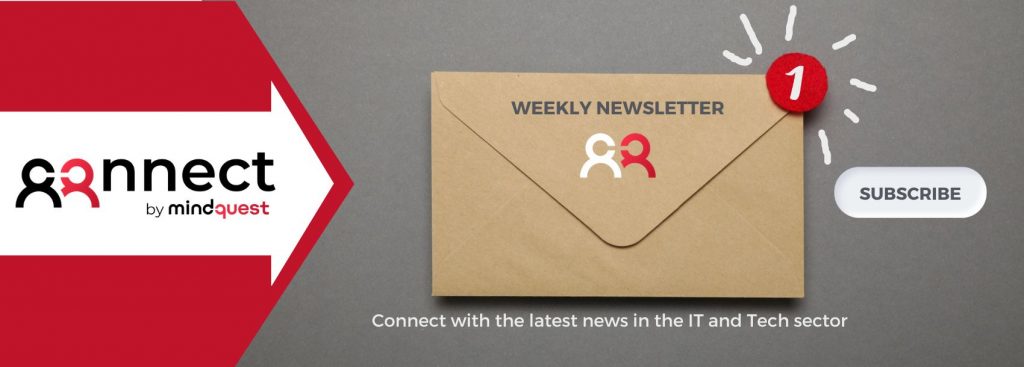You’ve probably heard of the role of project manager. And now you’re wondering what these professional roles consist of and what their tasks and career paths are. Well, in this article we will tell you all about the Project Manager roles, their competencies, skills, and salary expectations.
What is Project Management?
Firstly, let’s define what it is. Project Management is the process of planning, developing, and delegating responsibilities for an organization’s intended objectives of a particular project according to agreed criteria.
What is a Project Manager?
Then, based on the definitions found on the Internet, the Project Manager is the person responsible for planning and safeguarding the successful execution of the steps to carry out a project. In other words, it is the profile that coordinates the work of the team to meet the objectives.
Large companies have always invested in a similar role to take responsibility for the management and supervisory tasks. But, why are the roles and skills of the Project Manager more important today than ever before? What has changed so that all companies have decided to incorporate one in their ranks?
The answer is simple. The digital business context in which we find ourselves is very changeable and the strategy varies according to external demands. This is why today, more than ever, companies need Project Managers, who will keep the focus on objectives and take into account the external factors that the team is facing.
Also read our Validation Engineer and Solution Arc13 interneshitect: Job description
Roles and skills of a Project Manager
The most relevant roles and skills of a Project Manager include:
- Defining the reason why a project is needed
- Specifying the quality of each deliverable part
- Estimating the resources and timelines required
- Developing and implementing a plan and processes for the project
- Leading and motivating the team
- Managing risks, issues and changes to the project
- Monitor progress
- Maintain ongoing communication with stakeholders
Also read our CTO and Technical Expert Job description
Salary expectation of a Project Manager

According to the data, 71% of Project Managers who have shared their salary say that it has increased in the last year. The demand for this profile continues to grow steadily, mainly in countries such as Mexico, Colombia, Peru, and Spain.
Of course, the salary depends to a large extent on the project management experience that each person brings. Among the most in-demand profiles, the average salary of a Project Manager with 2 to 5 years’ experience is between $30,000 and $40,000 gross per year, depending on the geographical area and the size of the company.
Skills of a Project Manager

The role of project manager, unlike other profiles, does not require purely technical knowledge. Rather, it requires a specific set of skills that are acquired while working in the profession. For example, the ability to plan, organize, coordinate and control work.
1. Leadership
In the digital era, the role of the Project Manager must revolve around leading and driving the digital transformation within the company. A good leader must know how to transmit these values to their team. Also, they need to transmit their motivation to work and achieve the objectives.
Also read our Director of Information Systems and Quality Manager job description
2. Teamwork
Being a leader does not mean that you do not need to work in a team. On the contrary, you need to interact with many hierarchical levels within the company, and it is important to know how to do it with each one of them to clearly determine the objectives and guidelines to be followed.
3. Organization
To a large extent, the Project Manager’s job is to organize, organize and organize. The organization of the processes and actors involved in the project depends on him/her, as well as a good organization of the deadlines and times of the actions.
4. Communication
If there is one thing a Project Manager is expected to be, it is a great communicator. One of their tasks is to create good communication channels and ensure that all the agents involved in the project know and are clear about their role in the planning.
5. Conflict management skills
In addition, interpersonal relationships in project management are a fact of life, and it is inevitable that conflicts may arise at some stage. That is why it is important that the Project Manager knows how to manage this type of problem and act as a mediator to solve them and create a good working environment.
Discover 17 IT management certifications for IT leaders
6. Ability to delegate
A good manager must also be aware of his or her limitations and assume that it is impossible to cover everything. Therefore, it is important that he/she knows when to delegate and trust his/her subordinates, respecting their functions and motivating them in their work.
7. Detail-oriented and attentive
The quality of the service provided is one of the main objectives to be met by the Project Manager. To this end, he/she must be demanding and attentive to detail, assessing at all times that the standards of excellence are met and being able to identify what goes wrong to make the right decision at all times.
8. Knowledge of the market
Undoubtedly, if the project has a market outlet, it is the Project Manager’s job to know the trends and the competition that may arise to adjust the focus of the objectives towards success.
The position of e-CRM (electronic customer relationship management) project manager lies at the intersection of the IT, marketing, and sales functions. This role occupies an important place in the field of web-based customer relations, as it coordinates the implementation of digital campaigns across all of a company’s digital platforms.
Read also our article on the job description of the e-CRM project manager to learn about the required skills and salary expectations for this position.
9. Target orientation
In addition to setting the main objectives within a project, unforeseen events can also arise. It is crucial that the Project Manager knows how to guide the team with quick and precise decision-making, and establishing deadlines.
10. Knowledge in evaluation and metrics
Having knowledge of analysis and metrics is essential for the Project Manager since one of its functions is to evaluate the efficiency, progress, performance, productivity, and quality of a project or product. In this sense, metrics help to know the status of the ongoing project in terms of time, costs, and profitability.
Also read our IT Product Manager job description
11. Budgeting and planning
The budget indicates how funds will be spent during the lifetime of a project. The Project Manager needs to define in terms of cost all efforts invested in each task.
Also read the IT Business Analyst Job description

What you need to study to become a Project Manager
Professionals with specific and multidisciplinary training with a digital base who manage value, time reduction, agility, and reliability of objectives are becoming increasingly important in companies. Although there is no specific career with which to learn to cover Project Manager roles, you do need to have skills in management, business, and techniques such as design thinking, problem-solving, and Agile & Scrum.
Design Thinking

Design Thinking is a discipline that is based on the sensitivity and methods of designers to match the needs of people with what is technologically feasible.
Brands are constantly looking for digital experts that combine emotion and innovation. It is within this context that they seek the help of a Creative Technologist.
The Creative Technologist plays an important role in the digitization of an agency or brand. His or her main mission is to help position brands through technology and innovation. It is a hybrid job that combines expertise in technology, marketing, and design.
Also read about the Creative Technologist
Problem Solving

Problem-solving is the skill that determines why a problem arises and how to solve it. It starts with identifying issues, devising solutions, implementing these solutions, and evaluating their effectiveness.
Agile and Scrum

Agile and Scrum is the process of regularly applying a set of best practices to work collaboratively as a team to achieve the best possible outcome for a project. Moreover, Agile and Scrum are some techniques used to achieve objectives.
The Agile transformation can be a very difficult project for a company. Many reasons can lead to failure: management not open to agility, change of direction and goals…
The Agile Coach is a change agent for companies on the road to agility. He helps companies transform over the long term.
Also read our Agile Coach Job Descrtiption
On the other hand, the origin of the term Scrum comes from rugby. The job of the Scrum Master is analogous to that of the scrum-half. The Scrum Master has the responsibility to push others in the right direction. Promote team unity, and communicate with the outside world. The Scrum Master, therefore, acts as a guide. He or she helps and facilitates the work of the team, with a view to improvement and adaptation.
Also read our Scrum Master Job Description
Jira is a multi-functional platform developed by Atlassian that facilitates the management of development and Agile projects. It is a tracking software enabling teams to define activities, identify blockages and share information. This tool is specifically designed to meet the needs of teams working in Scrum or Kanban.
Explore the role of the Jira Administrator
Need advice on how to start or develop your freelance consulting business in tech or IT? Need to start a new permanent or freelance assignment? Join Mindquest and get support from our team of experts.


